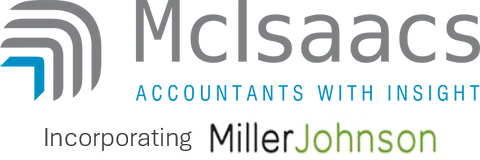Covid -19 - Use of Money Interest (UOMI) Remission
Many of you would have seen media releases stating IRD can remit use of money interest and then some back peddling. Therefore we thought it would be best to clarify the eligibility and some of the specific wording IRD have used to ensure if you are relying on interest remission you have your ducks lined up to avoid disappointment.
Eligibility
To be eligible for remittance of penalties and UOMI, taxpayers must meet the following criteria:
- They have tax that is due on or after 14 February 2020
- Their ability to pay by the due date, either physically or financially, has been significantly affected by COVID-19
- They will be expected to contact the Commissioner as soon as practicable to request relief and will also be required to pay the outstanding tax as soon as practicable

It is the Commissioner's view that a customer has been significantly adversely affected by COVID-19 financially where their income or revenue has reduced as a consequence of COVID-19 and, as a result of that reduction in income or revenue, is unable to pay their taxes in full and on time.
What does "as soon as practicable" mean?
IRD state "as soon as practicable" will be determined on the facts of each case.
Inland Revenue considers the term means that so long as the taxpayer applies for the relief at the earliest opportunity and agrees to an arrangement that will see the outstanding tax paid at the earliest opportunity, or will be paid over the most reasonable period given the taxpayer's specific circumstances, the test will be met.
Those taxpayers who require further assistance at a later date, such as having to renegotiate the terms of an arrangement, should contact IRD at the earliest opportunity after determining they will have difficulty in paying the tax as agreed. So long as the taxpayer completes an arrangement (which may have been amended at the taxpayer's request during the period of the arrangement), the Commissioner will accept that by entering into and completing that arrangement, the test for "as soon as practicable" in respect of paying the tax will be met.
What information do you need to provide?
IRD state they will try to minimise the information required , however taxpayers should be able to provide, if asked:
- At least three months banks statements and credit card statement;
- Any management accounting information;
- A list of aged creditors and debtors.
IRD will not ask for that information in every case, but the information should be available if they do ask for it. For businesses, IRD will be looking to understand the taxpayer's plan to sustain their business. IRD say they understand you might not be able to get all this information at this time given the COVID-19 lockdown. They will work with you based on what you know and are able to access at this time and will continue to do so as more information becomes available.
New debt and pre-existing debt
For new tax debt Inland Revenue will consider:
- Instalment arrangements
- Instalment arrangements with a deferred payment start date
- Partial write-off due to serious hardship & payment of the remaining tax by instalment or lump sum
- Partial payment and write-off of the balance under maximising recovery of outstanding tax
- Write-off due to serious hardship
Pre-existing debt prior to COVID-19
Taxpayers whose debt is also subject to an arrangement but consider they may not be continue with the current terms due to being significantly affected by COVID-19 can ask to renegotiate the instalment arrangement. Any of the above options may be appropriate and each case will be considered on its own facts. If you believe you will have difficulty in meeting your current arrangement please contact us or IRD as soon as possible.
Customers who do not have their debt under an arrangement, should contact IRD as soon as possible to discuss what options may best suit their circumstances or alternatively as your tax agent we are able to contact IRD and liaise on your behalf.
****************************************************************************************************************************
Please note: The above E-newsletter notes and the related articles on our website are of a general nature and therefore we urge clients who may be affected by these changes to contact us to discuss your specific circumstances before making any changes or drawing any conclusions.
If you do not wish to receive these E-newsletters please use the unsubscribe option below.
Takapuna Office
Ground Floor, Takapuna Finance Centre
159 Hurstmere Road
P O Box 331 626
Takapuna, Auckland


